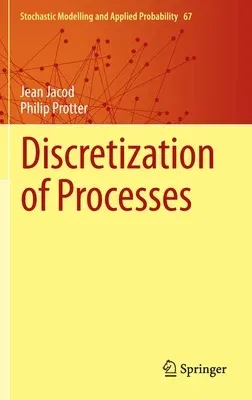Jean Jacod
(Author)Discretization of Processes (2012)Hardcover - 2012, 23 October 2011

Qty
1
Turbo
Ships in 2 - 3 days
In Stock
Free Delivery
Cash on Delivery
15 Days
Free Returns
Secure Checkout

Part of Series
Stochastic Modelling and Applied Probability
Print Length
596 pages
Language
English
Publisher
Springer
Date Published
23 Oct 2011
ISBN-10
3642241263
ISBN-13
9783642241260
Description
Product Details
Authors:
Book Edition:
2012
Book Format:
Hardcover
Country of Origin:
NL
Date Published:
23 October 2011
Dimensions:
23.39 x
15.6 x
3.33 cm
ISBN-10:
3642241263
ISBN-13:
9783642241260
Language:
English
Location:
Berlin, Heidelberg
Pages:
596
Publisher:
Weight:
1025.12 gm